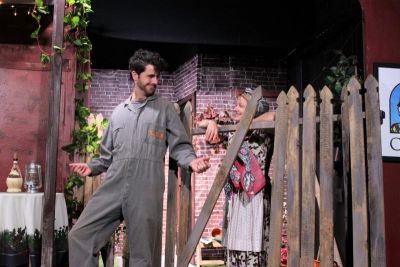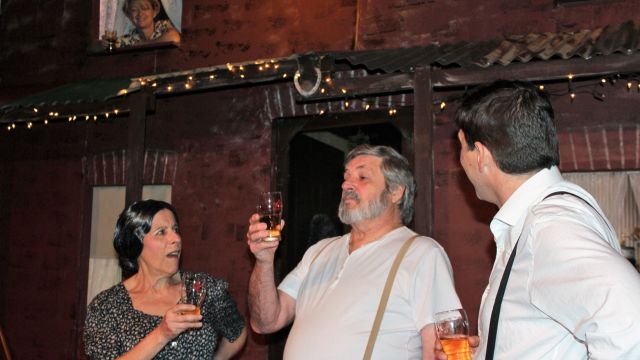The Shifting Heart
Richard Beynon’s The Shifting Heart was the first play to deal with Australia’s xenophobic attitude to immigrants. It followed Summer of the Seventeenth Doll in the renaissance of Australian playwriting in the late fifties and had a healthy production life during the era and even a London stint at the Duke of York’sTheatre at a time when the West End was in the full-flight of “kitchen-sink drama”. Set in a terraced house in Melbourne’s inner-suburb of Collingwood, Beynon’s play looks at an Italian working-class family, the Bianchis, trying to break down barriers and prejudice at a time when all immigrants were lumped together and labelled “New Australians” and called “wops” and “dagoes”.
Long a staple on the community theatre circuit, the play in recent years has fallen off the radar, so it’s good to revisit this classic with contemporary eyes. Although xenophobia sets the action of the story in motion, it’s not really about race-hatred, but more about the fabric of family and how to maintain solidarity within it.
It is Christmas Eve 1956. Clarry, a truck-owning Aussie bloke, is married to the Bianchis’ daughter Maria who is pregnant again following two miscarriages. They argue. There is tension between the two. Momma tries to laugh off the indignity of being called Momma Macaroni and Poppa Spaghetti by a local shopkeeper, the neighbours on one side throw a dead fish over their back fence, while the neighbour on the other gets drunk and assaults his wife. Gino, the hot-headed “naturalised” son, goes to the local dance and is refused admission for being a “New Australian.” Angry, he returns with a knife and is beaten up so badly that he later dies. Maria gives birth which reunites Maria and Clarry.
By today’s standards, the play’s racism is very tame, the plot melodramatic, and the second-act wordy and in need of some editing surgery, but its timelessness is what gives it contemporary currency.
 Rod Felsch’s performance as Poppa Bianchi was the lynch-pin of the whole play, maintaining a fractured English accent throughout and bringing nice touches of fatherly warmth and humour to a man with the odds stacked against him and the determination to beat them. Paula White’s Momma was staunchly supportive bringing affection and a heightened emotion to the tragedy that unfolded.
Rod Felsch’s performance as Poppa Bianchi was the lynch-pin of the whole play, maintaining a fractured English accent throughout and bringing nice touches of fatherly warmth and humour to a man with the odds stacked against him and the determination to beat them. Paula White’s Momma was staunchly supportive bringing affection and a heightened emotion to the tragedy that unfolded.
Newcomer Adeodatus McCormick brought fiery passion to the impetuous Gino, whilst Simone-Maree Dickson’s Maria throbbed with heartache. Daniel Medda missed the earthiness of Clarry, but Joanne Robinson’s Leila had it in buckets.
Stepping in at the last minute, Laurie Webb was double cast as the next-door drunken lout Donny, and the laconic Detective Lukie. It was a credit to his ability they were both distinctive characters.
The cast were helped by the ambience and authenticity of Tristian Holland’s period-perfect rear of a terraced-house set, and costumes that reeked of the fifties. Janine Francis’ direction was naturalistic but kept the melodrama in check. Kudos to Margaret Bell and the director for the program which included ads for a Ginger Meggs annual and The Quiz Kids, and William McCreery-Rye’s front-of-house video images of vintage Melbourne trams. It was a nice nostalgic touch.
It may be dated, but this Australian classic still burns with truth.
Peter Pinne
Subscribe to our E-Newsletter, buy our latest print edition or find a Performing Arts book at Book Nook.

